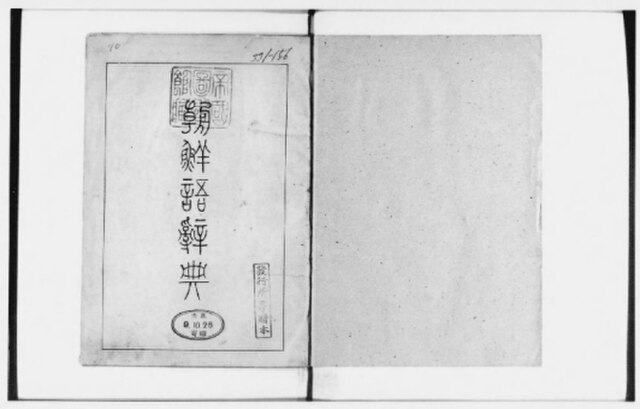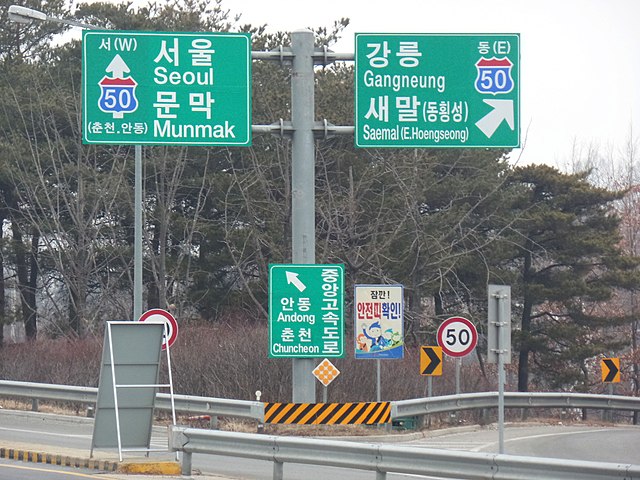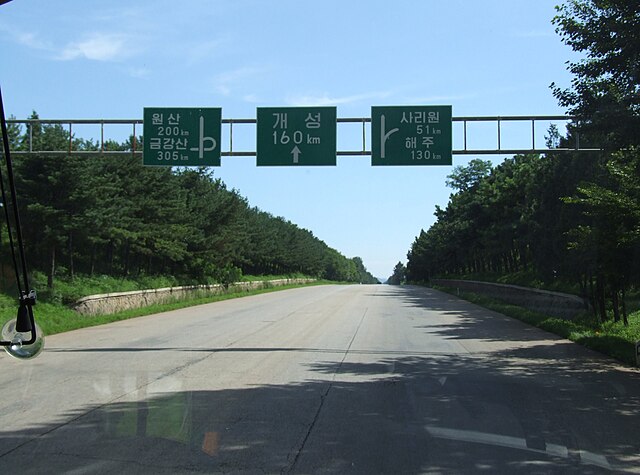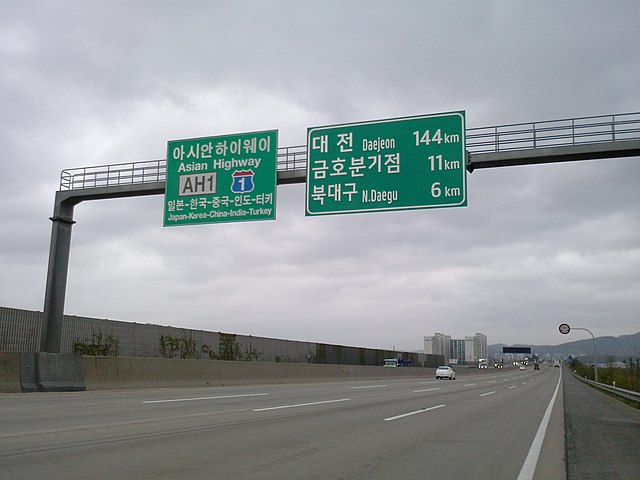Busan, officially Busan Metropolitan City, is South Korea's second most populous city after Seoul, with a population of over 3.4 million inhabitants as of 2017. Formerly romanized as Pusan, it is the economic, cultural and educational center of southeastern South Korea, with its port being South Korea's busiest and the sixth-busiest in the world. The surrounding "Southeastern Maritime Industrial Region" is South Korea's largest industrial area. The large volumes of port traffic and urban population in excess of 1 million make Busan a Large-Port metropolis using the Southampton System of Port-City classification. As of 2019, Busan Port is primary port in Korea and the world's sixth-largest container port.
Image: Haedong Yonggungsa, Busan
Image: Nice view from Dongbaek bridge panoramio
Image: Busan South Korea Republic of Korea ROK Daehan Minguk (31877197338)
Image: Busan Sajik Stadium 20080706
Korean is the native language for about 81 million people, mostly of Korean descent. It is the official and national language of both North Korea and South Korea. The language has notable differences in each of the Koreas, in part owing to different official standardizations of the language. They are still largely mutually intelligible, however. South Korean newspaper Daily NK has claimed North Korea criminalizes the use of the South's standard language with the death penalty, and South Korean education and media often portray the North's language as alien and uncomfortable.
The oldest Korean dictionary (1920)
The Latin alphabet used in romanization on road signs, for foreigners in South Korea
Highway sign in Korean, Reunification Highway, Pyongyang, North Korea
Highway sign in Korean and English, Gyeongbu Expressway, Daegu, South Korea








